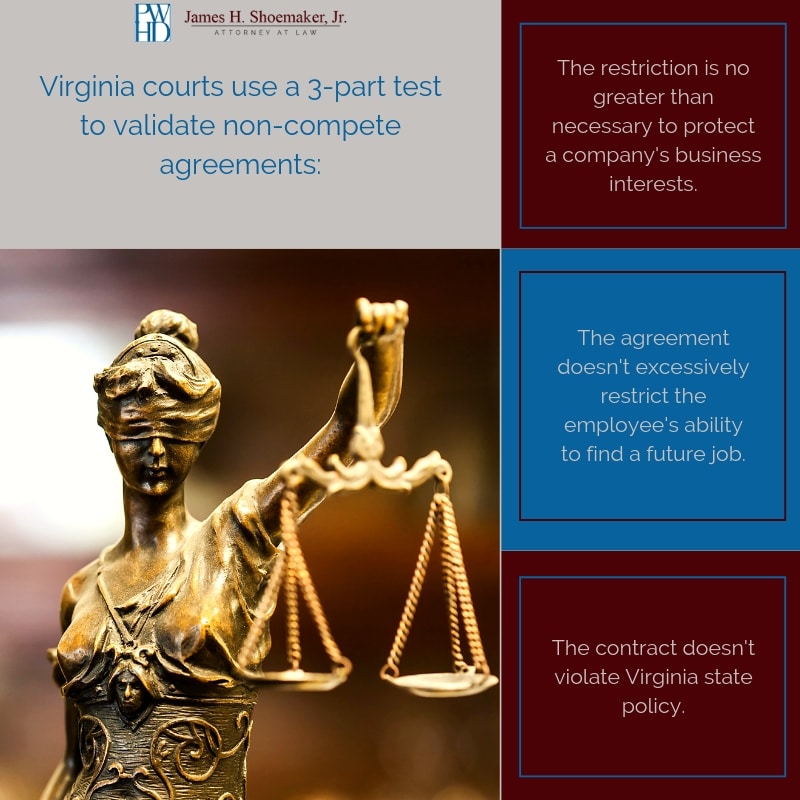
While companies naturally want to protect their trade secrets and ideas, many non-compete agreements can be overly restrictive, meaning they limit the employee’s future opportunities more than is necessary to safeguard the company. In these cases, unnecessarily restrictive covenants can be challenged in court. Here is a brief overview of the factors that could make your non-compete agreement unenforceable.
What is Commonly in a Non-Compete Agreement?
These clauses of these contracts often fall under two categories:
- Non-competition
- Non-solicitation
Non-competition provisions can prevent employees from leaving their company to work for a rival or starting their own business to compete with their former employer, often for a specified period. They may also have geographic restrictions. For example, if you work for a firm in northern Virginia, your agreement may allow you to join a company in the same industry based in California, but not one based in Maryland.

Will a Court Validate my Non-Compete Agreement?
Virginia courts use a three-prong test to determine if a non-compete agreement is valid or not. They also place the burden of proof on the employer. The company must prove that it suffered actual financial harm because of your actions. It must also show:
- that the restriction is “no greater than is necessary to protect the employer’s legitimate business interest”;
- that the agreement is not excessively severe or oppressive in restricting the employee’s ability to find another job or make an income; and
- the promise does not violate a clear mandate of Virginia public policy.
Courts will examine whether the geographic and time limitations in your contract were overbroad. They are also likely to invalidate an agreement that unfairly damages your ability to gain future employment. A Virginia court may uphold a non-compete agreement that is narrow in time and geographic scope and limits its restrictions to legitimate business necessities.
Don’t Let Your Non-Compete Agreement Get to Court
Even if a court throws your contract out, you will likely have spent a lot of time and money challenging it. Employers know this. They may force you to sign a non-compete agreement they know is overly restrictive to force you to sue them to get out from under it. Even though you may win the case, the company is counting that you won’t have the resources for years of potential litigation.
That’s why it’s critical to have an experienced employment attorney by your side from the beginning of the process. James H. Shoemaker, Jr. has practiced employment law in northern Virginia since 1993. He can help ensure your non-compete agreement is not overly restrictive before you sign it. This could save you the time, money, and stress of having to litigate your way out of an unfair contract later.
Schedule Your Northern Virginia Employment Law Consultation Today
Mr. Shoemaker has more than two decades of experience fighting for workers’ rights. He is dedicated to helping employees receive fair treatment from their employers. Mr. Shoemaker serves clients in Virginia Beach, Hampton Roads, Washington, D.C., and nearby areas of Virginia and Maryland. He also practices throughout the United States.
Call (757) 223-4580 today to set up a consultation.
